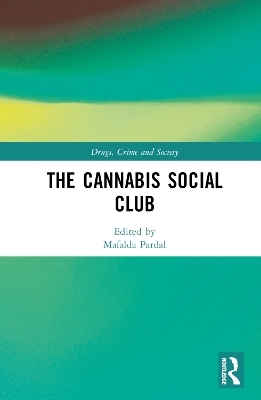
The Cannabis Social Club
Routledge (Verlag)
978-0-367-51906-3 (ISBN)
As cannabis legalization reforms are underway, there is some concern that non-profit, ‘middle ground’ options may remain under-researched and thus less visible. This book offers an in-depth account of one of the possible ‘middle ground’ models for the supply of cannabis: the Cannabis Social Club.
Cannabis Social Clubs (CSCs) are typically formal, non-profit associations of adult cannabis users who produce and distribute that substance close to or at cost price among themselves. They constitute an user-driven model for the supply of cannabis. In most jurisdictions, CSCs remain a grass roots, unregulated initiative of groups of users, but the model has been legalized in Uruguay and Malta, and it has featured recent debates and legislative proposals in other countries. This book brings together contributions from internationally respected scholars, drawing on case studies, empirical findings and policy reflections, from a range of countries (such as Belgium, Canada, New Zealand, Spain, Uruguay, USA), and a consideration of the CSC model from different disciplinary backgrounds. Part one provides detailed analysis of where and how CSCs have been operating, and a critical analysis of their key features and relationship with institutional actors. Part two discusses several policy outcomes and proposes a design of a regulatory market, as well as considering whether the CSC model might be suited for adaptation to the supply of other substances.
The Cannabis Social Club is important reading for academics in the fields of drug policy analysis, criminology, economics, policy studies and anthropology. It will also be of interest to policy makers, journalists, law-enforcement personnel.
Mafalda Pardal (PhD) is a Senior Analyst at RAND Europe, and serves as European Lead at the RAND Drug Policy Research Center. During the time this book was prepared Dr. Pardal was Research Fellow and Assistant Professor in Criminology at Ghent University. Her research interests include the study of illicit markets and drug policy.
Chapter 1. 30 years* of Cannabis Social Clubs: looking back and looking ahead
Part I
Chapter 2. Cannabis Social Clubs in Europe: a transnational social movement network in the making?
Chapter 3. A friendly match? The relationship between Cannabis Social Clubs and regulators in Uruguay.
Chapter 4. What are the barriers and prospects for establishing Cannabis Social Clubs in New Zealand?
Chapter 5. The Social Club – what’s in a name?
Chapter 6. Legal or not: a comparative analysis of Belgian and Uruguayan CSC members’ profile and policy preferences.
Part II
Chapter 7. Bringing Foucault to Cannabis Social Clubs (through the notion of counter-conduct).
Chapter 8. CSC + 2: can the Cannabis Social Club model be a buffer against market distortions?
Chapter 9. Cannabis legalization in Washington: policy evolution and emerging evidence from the first nine years.
Chapter 10. From compassion to commercial: what got left behind in the transition to legal cannabis in Canada.
Chapter 11. Drug social clubs – the next ‘social club’ generation?
| Erscheinungsdatum | 13.07.2022 |
|---|---|
| Reihe/Serie | Drugs, Crime and Society |
| Zusatzinfo | 12 Tables, black and white; 16 Line drawings, black and white; 13 Halftones, black and white; 29 Illustrations, black and white |
| Verlagsort | London |
| Sprache | englisch |
| Maße | 156 x 234 mm |
| Gewicht | 453 g |
| Themenwelt | Geisteswissenschaften ► Psychologie ► Allgemeine Psychologie |
| Recht / Steuern ► EU / Internationales Recht | |
| Recht / Steuern ► Strafrecht ► Kriminologie | |
| Sozialwissenschaften ► Ethnologie | |
| Sozialwissenschaften ► Soziologie | |
| Wirtschaft ► Volkswirtschaftslehre | |
| ISBN-10 | 0-367-51906-2 / 0367519062 |
| ISBN-13 | 978-0-367-51906-3 / 9780367519063 |
| Zustand | Neuware |
| Haben Sie eine Frage zum Produkt? |
aus dem Bereich


